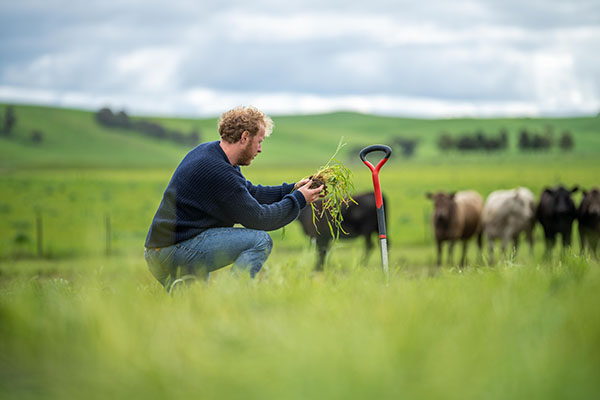“Biological Economies” redefines agri-food systems with radical new perspectives
07/24/2025 / By Belle Carter

- “Biological Economies” introduces a radical new framework that treats research as performative and enactive, challenging traditional views of agriculture and food systems.
- The book responds to: (1) integrating non-human actors (e.g., plants, microbes) into analysis, (2) adopting a post-structural political economy emphasizing local networks over large-scale structures and (3) advocating hands-on, interventionist research methodologies.
- Real-world examples (e.g., Tibet’s caterpillar fungus trade, New Zealand’s animal disease control) demonstrate the interplay of human and non-human actors, revealing the complexity of agri-food systems.
- The authors highlight the need for adaptive, experimental research and stress that food systems are inherently political, calling for ethical engagement and “moral politics” in food studies.
- The work urges readers to embrace uncertainty, agency and diverse ontologies to reshape agri-food research toward sustainability and justice.
“Biological Economies: Experimentation and the Politics of Agri-Food Frontiers” offers a radical reimagining of how we understand and engage with agriculture and food. Edited by Richard Le Heron, Hugh Campbell, Nick Lewis and Michael Carolan, this work introduces the concept of “biological economies,” a paradigm shift that challenges traditional notions and embraces the idea that research is not merely observational but inherently performative and enactive.
The book emerges as a response to three critical challenges confronting agri-food studies. Firstly, it advocates for “more than human” approaches, acknowledging that non-human actors – such as animals, plants and microorganisms – are integral to food systems. This perspective disrupts the anthropocentric view that has long dominated agricultural discourse.
Secondly, the authors introduce a “post-structural political economy” of food and agriculture. This approach moves away from a singular focus on large-scale structures like capitalism and the nation-state, instead emphasizing the significance of local contexts, diverse networks and the agency of smaller actors. It recognizes that food systems are shaped by a complex interplay of factors beyond traditional economic models.
Finally, the book champions “enactive” and performative research approaches. This means actively engaging with and intervening in the systems being studied, rather than just observing and analyzing them. The authors argue that research has the power to shape realities, and thus, a more dynamic and interactive approach is essential.
The editors and contributors to “Biological Economies” are a diverse group of scholars and researchers who bring a wealth of expertise and perspectives to the table. Their collective work is informed by a variety of disciplines, including sociology, geography and environmental science, reflecting the book’s interdisciplinary approach.
One of the book’s most compelling features is its use of case studies to illustrate the principles of biological economies. These real-world examples provide a tangible understanding of the complex systems at play.
For instance, the story of the caterpillar fungus in Tibet offers a fascinating glimpse into the interplay between local harvesters, global markets and the biology of the fungus itself. Known as “soft gold,” this fungus is highly valued in traditional Chinese medicine and has become a lucrative commodity. The authors delve into the multiple ontologies that shape this unique agri-food system, revealing the intricate connections between human and non-human actors.
Another compelling case study is the discussion of animal disease control in New Zealand. This example highlights the tensions between bureaucratic protocols and the more pragmatic strategies of farmers and veterinarians. It underscores the importance of understanding diverse perspectives and practices in managing complex agricultural challenges.
The book also emphasizes the role of experimentation in agri-food research. The authors advocate for an approach that embraces uncertainty and is open to new and unexpected outcomes. This is reflected in the concept of enactive research, which involves actively engaging with and intervening in the systems being studied.
Furthermore, “Biological Economies” delves into the political dimensions of food systems. The authors argue that food is inherently political and that understanding the politics of food is crucial for creating more just and sustainable systems. They call for a “moral politics” of food, recognizing the ethical implications of our food choices and the power dynamics that shape our food systems.
“Biological Economies” is a provocative and inspiring work that challenges readers to rethink their assumptions about food and agriculture. It invites us to embrace a more experimental, enactive and politically engaged approach to research. As the authors argue, the future of agri-food research lies in recognizing the agency of non-human actors, the importance of local contexts and the political dimensions of food systems.
Learn more about biological economies by watching the video below.
This video is from the BrightLearn channel on Brighteon.com.
Sources include:
Submit a correction >>
Tagged Under:
agri-food, agriculture, animals, Biological Economies, Ecology, economy, ecosystem, environ, food systems, microorganisms, Plants, politics
This article may contain statements that reflect the opinion of the author





















